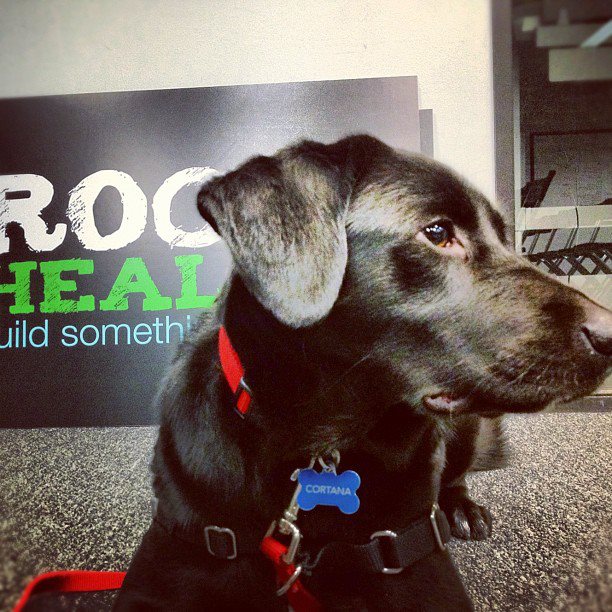An inside look at incubators
Yesterday, MedCityNews published an article eviscerating the startup support movement, including accelerators, incubators, and other such vehicles. Specifically mentioned were Rock Health, Blueprint, and Healthbox. In what amounted to an opinion piece, Kendall Wouters of Reach Ventures made such wonderfully vivid descriptions about Healthcare incubators as “puppy mills gambling with people’s dreams” producing a “garden of startups that are dead on arrival.”
The position of the article is that incubators are not only bad, but in fact, incompetent and nearly evil. Incubators, it claims, take people that are not ready to be entrepreneurs – often with horrible ideas – prop them up, and hoist them out into the world to fail. Although the article never gives solid reasoning, the reader can only assume that the only driver for such a fatalistic activity is ego, since anyone trying to run a business would be insane to pursue such a strategy of failure.
The article claims not only that incubators are wrong in their approach, but that Mr. Wouters has the correct way. He is quoted as saying one of the key problems of incubators is that they do not spend “a couple of months to conduct a formal market study assessment”, and later saying his differentiation, is to “find an idea, assess it, build it quickly and see it through the valley of death.” One can only assume that the valley of death is what comes after you make it out of the puppy mill and through the aforementioned garden.
Let us put this argument to bed not with hyperbole and generalities, but a description of what actually goes on inside a health care incubator. Rather than discussions of fictitious puppy mills, I’d like to present the point of view of someone who has been lucky enough to have a health technology startup and see it through a successful exit, and who has spent significant time with many of the top health care startups in the United States, both incubated and not.
My bias and point of view should be clear from the outset. I am a mentor and advisor at Rock Health, where I work with all of the startups, and help review applicants. I will not make the claim that incubators are without fail, nor, that all incubators are equal in their process and execution. Much could be written on the areas we need to improve.
Let’s start with the application process, which Mr. Wouters claims is done by “gut feeling”. At Rock Health, we have a diverse review board that examines technical, medical, clinical, business, and founding teams. If we don’t feel we have the right people to review the applicant, we will bring in specific skills for to aid in the process. Recent examples include evaluations of complex chemistry, surgical procedures and pharmaceutical sales. In the end, we accept around 3% of the applicants.
Selection is an imperfect, evolving process. We undoubtedly make mistakes, and I can point to more than a few startups we rejected that could have been accepted, and will be successful companies with our without the benefit of an incubator. I would venture to guess, but cannot yet prove, that there is little difference between the 3% that are accepted, and the top 10% of our application pool. This is a metric, of course, we track over time and try to understand and use to refine our process.
After selection, the companies then have five months to assess, test, fix, pivot, test, fix (again!), build, and get to demo day. During that process, the startups receive mentoring and presentations from some of the most important people in health technology and startups. While it would be impossible for me to list them all, recent samples includes people like Bob Kocher, Aneesh Chopra, Eric Topol and Todd Park on topics ranging from 510k submissions to genomics to the government’s position on open data. Eric Ries has come in and discussed, in detail, the Lean Startup Movement. And recently, Gary Wolf and Ernesto Ramirez from Quantified Self and Bill Day of Runkeeper/HealthGraphAPI came during separate sessions and worked with the teams on their ideas and concepts in one-on-one sessions.
I’m proud to say, Rock Health has started sharing all of these talks online as part of our “Startup Elements” program. Thanks to a generous grant by the Kauffmann Foundation, all of these talks, learnings, and events will be captured and shared to further the community. Our puppy mill of videos, I suppose.
Aside from these luminaries, the startups are also paired with mentors who have made it through the grind of both startups and the healthcare market. People like Linda Avey, of 23andMe and Curious, Jae Chung of goBalto and George Kassabgi of Keas (to name only a few) are working with these teams every week, providing a mix of tough love and positive feedback to help these startups be the best they can be.
Remember every one of these people are volunteers. They are not paid. They do not receive a percentage of the company. They are choosing to do this while they are running their own companies. They believe in the community, they believe in the movement, and they believe in these entrepreneurs. Their influence, effort and dedication should not be dismissed so simply by Mr. Wouters.
If Mr. Wouters wants to make the claim that one of the biggest failures of incubators is the lack of follow-on investments, and bemoan the investment market for healthcare startups in general, I wholeheartedly agree with him. The space has an unfilled funding gap between angel and Series A. Even the participation in angel rounds is lead by a fleeting few, although each year we do see engagement expand. This is an area of great interest to me personally. Healthcare startups are evolving, but there are many models and investment thesis we can apply to try to figure out the right way to promote innovation, investment, and yes, risk. By no means do I think we have it figured out.
(Note: Not unlike the Startup Elements program, Rock Health collects and publishes financing data for the health technology market.)
Without a doubt, there are bad incubators. There are bad VCs, bad mentors, bad entrepreneurs, and bad startups. Dreams are, in fact, crushed. Startup life is not easy, and it is not for everyone. It does provide fuel for hand wrenching, dramatic quotes, but no one is served by such vitriol.
I can find no factual backing for the statement Mr. Wouters makes that with his process “there’s a much higher likelihood of creating sustainable businesses…We have execution, clear positioning, and market validation.” That said, I cannot claim he is incorrect, because he “isn’t ready to get into specifics.”
Let’s get specific. Let’s get engaged. If Mr. Wouters wants to take the time to understand the processes at Blueprint Health, Rock Health, and Healthbox, and then suggest changes, improvements, or failures: you have a seat at the table.
So, I extend an open invitation to Mr. Wouters, and anyone who wants to improve the process – come visit us. I’ll walk you through our classes, our data, our criteria, and all of the mistakes I think we’ve made. I’ll ask you what you think we can improve. I’ll introduce you to Steve of StartupHealth and Brad, Charles, and Mat at Blueprint Health, and ask them to do the same with you. Knowing their shared passion for health innovation and entrepreneurship, they would be more than happy to share more around their programs and invite suggestions to improve.
I’m inviting you into the community, to do something better. If you believe your way is the only way, then, I wish you the best, and hope you’ll share your successes, and your failures, so we can learn together, even if we disagree.
The market is a lot smarter than either one of us, and healthcare desperately needs help. We’re much better served attacking these problems, than each other.


